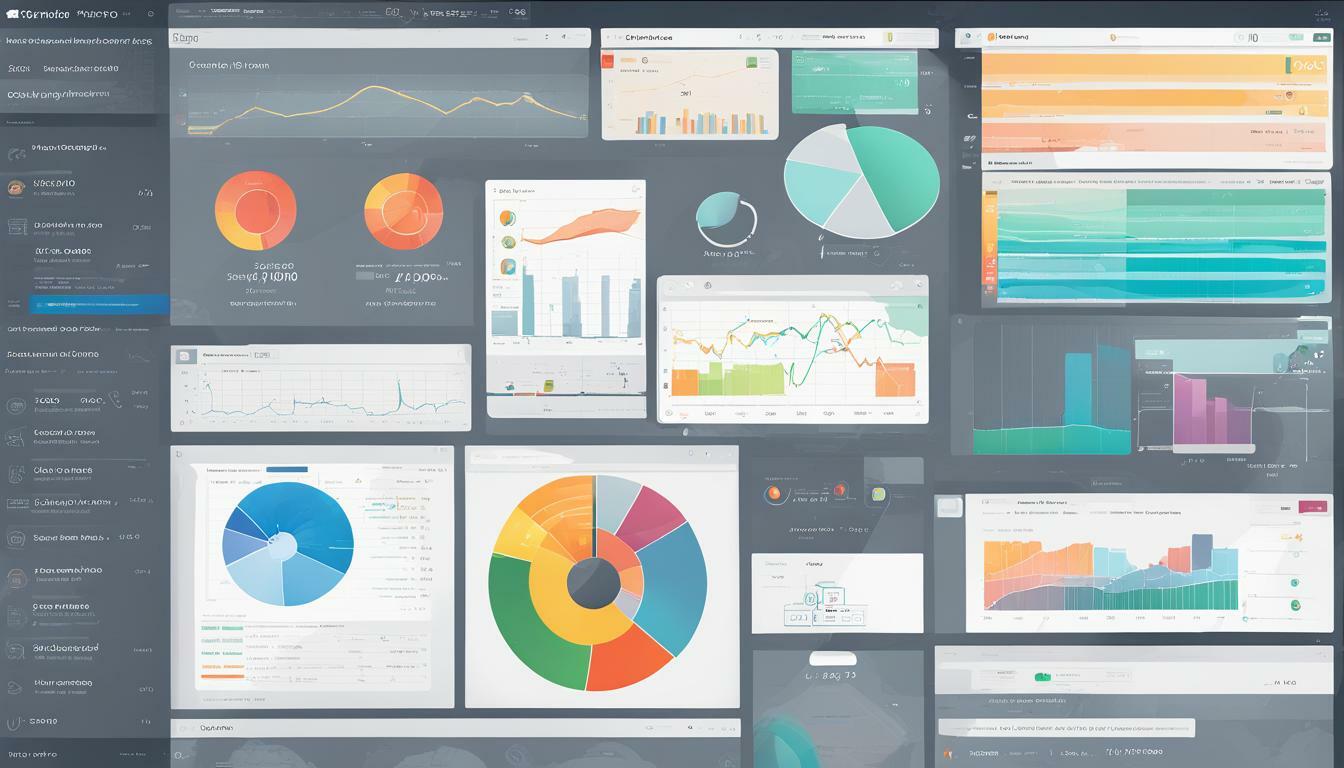
Welcome, fellow developers! In the world of app development, we all know how crucial it is to ensure optimal performance and reliable functionality. However, it can be a daunting challenge to identify and troubleshoot issues, especially as projects become more complex. This is where app logs can be a game-changer!
App logs provide a wealth of information that can be leveraged to optimize app performance, identify potential issues, and even aid in the debugging process. In this article, we’ll explore the potential of app logs and provide best practices for effective management, analysis, and utilization.
By unlocking the power of app logs, developers can gain valuable insights into app behavior, user interactions, and potential issues, enabling them to make data-driven decisions and improve overall app efficiency. So, let’s dive into the world of app log optimization and discover how to maximize the potential of this powerful tool.
The Role of App Logs in Efficient App Development
App logs are an essential part of app development, providing valuable insights into app behavior, errors, and potential issues that may arise. Utilizing app logs enables developers to optimize app performance and ensure that the app is functioning as intended.
The primary goal of app log optimization is to make sure that the logs contain relevant information that is necessary for identifying and diagnosing issues, while also minimizing the amount of data generated. Proper app log management is essential for efficient app development.
App logs provide developers with a detailed record of user interactions within the app, highlighting any errors or performance bottlenecks. By utilizing this information, developers can identify areas for improvement and streamline the development process.
The Significance of App Log Management
Proper app log management is crucial for efficient app development. By setting up a clear log management system and adhering to data retention policies, developers can avoid generating unnecessary data and maintain the relevance of the generated data.
In addition to data retention policies, app logs also need to comply with data privacy regulations that govern confidential information. Developers must ensure that sensitive information within app logs is safeguarded from unauthorized access.
Best Practices for App Log Optimization
Effective app log optimization begins by setting meaningful log levels. This ensures that logs contain all necessary information, while only generating additional data when necessary. Developers can utilize log analytics tools to efficiently analyze app logs, identifying patterns and anomalies in the log data.
App logs also provide valuable insights for debugging and troubleshooting app issues. By using logs to identify and fix errors and crashes, developers can improve the app’s overall performance.
Integrating app logs into continuous integration and deployment pipelines can facilitate efficient release cycles by testing new features and improving app performance.
App logs play a significant role in efficient app development, providing developers with valuable insights into app behavior and performance. By adhering to best practices for app log management, analysis, and utilization, developers can unlock the full potential of app logs and optimize their app development process.
Best Practices for App Log Analysis
Effective app log analysis is essential for developers looking to optimize app performance, identify potential issues, and make data-driven decisions. Follow these best practices for app log analysis to unlock the power of app logs:
- Set meaningful log levels: Proper log level configuration ensures that the most relevant information is captured in app logs. Be sure to set log levels at an appropriate threshold to avoid inundating logs with irrelevant data.
- Utilize log analytics tools: Analyzing app logs manually can be a daunting and time-consuming task. Utilize log analytics tools to automate log analysis, identify patterns and anomalies, and derive actionable insights from log data.
- Identify patterns and anomalies: Look for patterns and anomalies in log data to diagnose potential issues and make data-driven decisions. Identify correlations between certain log events and app performance metrics to optimize app performance and user experience.
- Regularly review and assess logs: Make it a practice to regularly review and assess app logs to identify trends and troubleshoot issues early on. This could help avoid catastrophic failures and improve overall app performance.
- Ensure log data best practices: Follow industry best practices for log data management, including complying with data privacy regulations, properly securing log files, and establishing data retention policies.
By following these best practices for app log analysis, developers can leverage the power of app logs to optimize app performance, identify potential issues, and make data-driven decisions.
App Log Management: Ensuring Data Integrity and Security
Proper app log management is crucial for optimizing app performance and ensuring data security. In this section, we will discuss best practices for managing app logs and safeguarding sensitive information.
Data Retention Policies
Establishing data retention policies is essential for managing app logs. It defines the duration for which log data should be retained, after which the data should be deleted or archived. This helps to keep the log files manageable and ensures that only relevant data is retained. It is essential to comply with data privacy regulations when implementing data retention policies.
Secure Storage of Log Files
Protecting log files from unauthorized access is critical for safeguarding sensitive information. Log files should be stored securely, using industry-standard encryption methods. Access controls should be implemented to ensure that only authorized personnel have access to log files.
Data Privacy Regulations
Compliance with data privacy regulations such as GDPR and CCPA is essential for ensuring data security. Data logged by apps may contain personally identifiable information (PII), and app developers must ensure that they handle this data in accordance with data privacy regulations.
Monitoring and Auditing
Regular monitoring and auditing of app logs are essential for ensuring that log files are being managed in compliance with best practices. Developers should monitor log files for unusual activity and investigate any anomalies that are detected. Regular auditing of log files helps to ensure that log data is being retained for the appropriate duration and is being handled in accordance with data privacy regulations.
Conclusion
Effective app log management is a critical component of app development. By following best practices for data retention, secure storage, and compliance with data privacy regulations, developers can ensure that app logs provide valuable insights into app behavior without compromising data security.
Leveraging App Logs for Effective Debugging
App logs can be a powerful tool for debugging and troubleshooting app issues. By analyzing log data, developers can identify errors, crashes, and performance bottlenecks.
It’s important to start by setting meaningful log levels to provide the necessary level of detail. Critical errors should be logged at a higher level than debug information to avoid cluttering the log with irrelevant data.
Once log levels are set, developers can analyze the data for patterns and anomalies. This can be done manually or with the help of log analytics tools. By identifying patterns, developers can pinpoint the root cause of issues and make informed decisions to resolve them.
When analyzing log data, it’s important to pay attention to time stamps and sequence of events. This can help identify the sequence of events leading up to an issue and provide insights into what happened just before the issue occurred.
By unlocking the power of app logs, developers can efficiently debug their apps and provide better experiences for their users.
Integrating App Logs into Continuous Integration and Deployment Pipelines
Integrating app logs into continuous integration and deployment pipelines is a game-changer for developers. By utilizing app logs throughout the development process, developers can significantly increase app log efficiency, improve app performance, and facilitate efficient release cycles.
By incorporating app logs into a CI/CD pipeline, developers can identify potential issues early on in the development process and fix them quickly. By accessing real-time data from app logs, developers can monitor app behavior, identify performance bottlenecks, and optimize app performance.
Moreover, integrating app logs into CI/CD pipelines allows developers to automatically test new features and identify any issues that arise. This delivers increased efficiency and saves time in the development process while improving overall app quality.
Ultimately, making use of app logs in CI/CD pipelines is vital for developers to gain actionable insights that can optimize their app development process. Whether identifying issues, monitoring app behavior, or testing new features, leveraging app logs is a no-brainer for developers striving for maximum efficiency and optimal app performance.
Conclusion
In conclusion, app logs are a powerful tool for developers looking to optimize app performance and improve the overall user experience. By unlocking the power of app logs, developers can gain valuable insights into app behavior, user interactions, and potential issues, allowing for efficient app development and effective debugging.
Following best practices for app log management, analysis, and utilization is key to maximizing the benefits of app logs. This includes using log analytics tools, setting meaningful log levels, and identifying patterns and anomalies in the log data. Additionally, proper app log management is essential for ensuring data integrity and safeguarding sensitive information in app logs.
By integrating app logs into continuous integration and deployment pipelines, developers can further streamline their development process and improve app efficiency. With the right approach, app logs can become an invaluable asset for any development team.
Overall, understanding the significance of app logs and following best practices for their management and utilization is crucial for developers looking to deliver high-quality apps that meet the needs and expectations of their users. So start unlocking the power of app logs today and take your app development to the next level!




